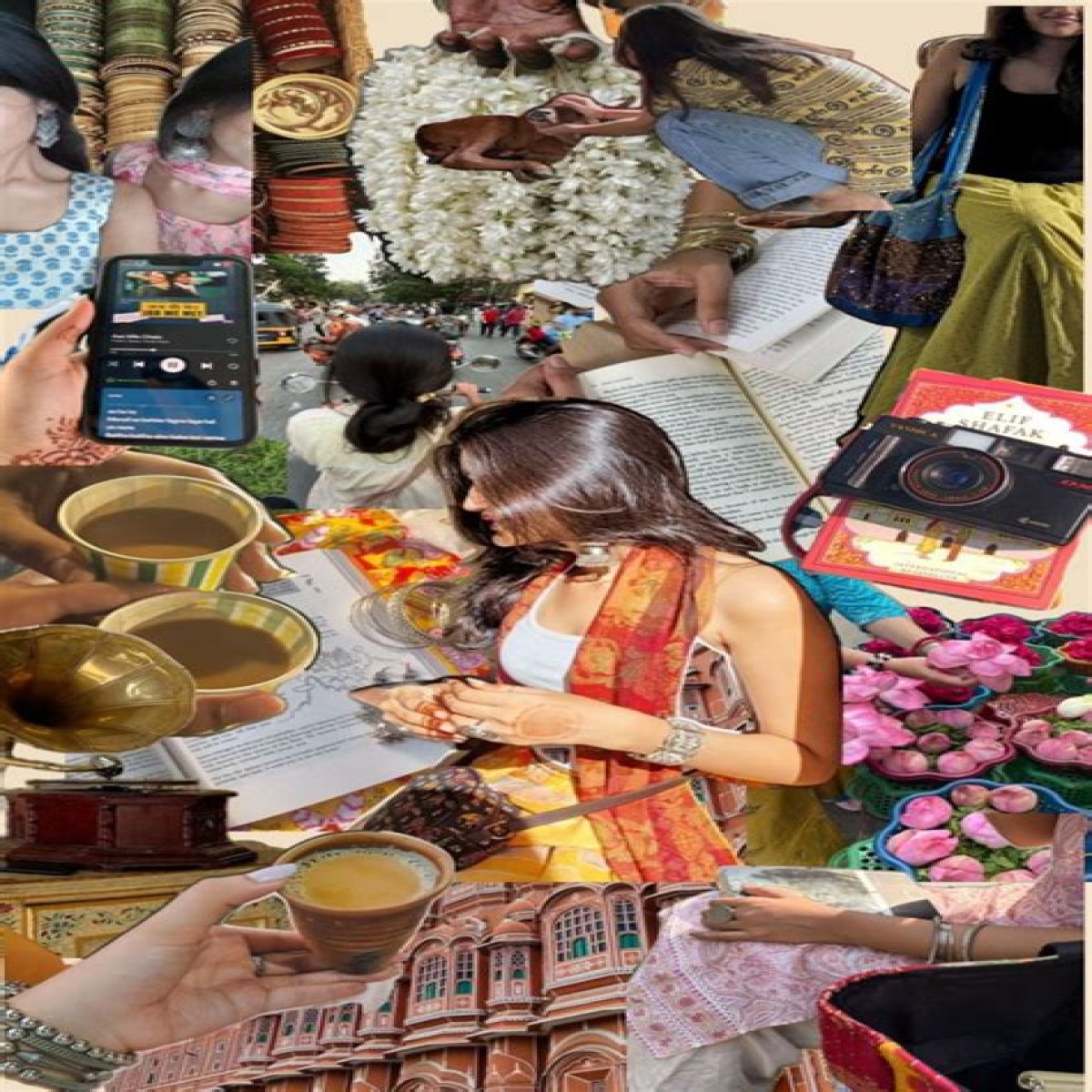Desi culture is a dynamic and colorful tapestry that weaves together the rich traditions, customs, and lifestyles of the South Asian diaspora. It encompasses everything from food, music, and dance to fashion and festivals, each carrying a unique essence that reflects the diverse heritage of the region. The term "desi" itself is derived from the word "desh," meaning country or land, and is often used to refer to people, practices, and products originating from the Indian subcontinent, including India, Pakistan, Bangladesh, Nepal, and Sri Lanka.
The allure of desi culture lies in its ability to transcend geographical boundaries, uniting millions of people across the globe. Whether it's through the delectable flavors of Punjabi cuisine, the mesmerizing rhythms of Bollywood dance, or the vibrant hues of traditional attire, desi culture captivates the hearts of many. As this culture continues to evolve, it also embraces modern influences, creating a fascinating blend of the old and the new.
In this article, we will delve deeper into various aspects of desi culture, exploring its significance, its influence on global trends, and how it continues to thrive in contemporary society. From understanding the roots of desi traditions to discovering popular desi personalities, we aim to paint a comprehensive picture of what it means to be part of this vibrant community.
What is the Origin of Desi Culture?
The origin of desi culture can be traced back to the ancient civilizations of the Indian subcontinent. Over millennia, this rich heritage has been shaped by various influences, including regional practices, invasions, and migrations. Understanding the historical context behind desi culture is essential to appreciate its depth and diversity.
How Does Desi Cuisine Reflect Cultural Diversity?
Desi cuisine is a perfect example of how diverse and rich the culture is. Each region boasts its unique flavors, ingredients, and cooking techniques. For instance:
- North India: Known for its rich gravies, paneer dishes, and bread like naan and roti.
- South India: Famous for its rice-based dishes, dosas, and sambar.
- East India: Renowned for seafood and sweets like rasgulla and sandesh.
- West India: Features spicy curries, dhokla, and a variety of snacks.
The diversity in cuisine not only showcases the regional ingredients but also reflects the cultural practices and traditions of the people. Each dish tells a story, making desi cuisine an integral part of the cultural identity.
What Role Does Music and Dance Play in Desi Culture?
Music and dance are vibrant expressions of desi culture. They serve as a medium for storytelling, celebration, and community bonding. Various forms of music, such as classical, folk, and contemporary, are deeply rooted in the cultural expressions of different regions. Dance forms like Bharatanatyam, Kathak, and Bhangra are celebrated for their intricate movements and cultural significance.
Who Are the Icons of Desi Culture?
Desi culture is adorned with numerous icons who have made significant contributions to art, cinema, and music. These personalities have not only shaped the cultural landscape but have also inspired audiences worldwide. Some notable figures include:
| Name | Profession | Contribution |
|---|---|---|
| A. R. Rahman | Composer | Revolutionized Indian film music |
| M. S. Dhoni | Cricketer | Led India to multiple victories |
| Priyanka Chopra | Actress | Global ambassador for desi cinema |
| R.ani Mukerji | Actress | Known for powerful performances |
How Does Fashion Reflect Desi Identity?
Fashion in desi culture is a beautiful amalgamation of traditional and contemporary styles. From the elegant sarees and lehengas to modern fusion wear, desi attire is a statement of identity, heritage, and creativity. Fashion events and designers have started embracing desi elements, showcasing them on global platforms, and redefining the perception of traditional attire.
What Festivals Are Celebrated in Desi Culture?
Festivals are an integral part of desi culture, bringing communities together to celebrate traditions and values. Some of the most widely celebrated festivals include:
- Diwali: The festival of lights, symbolizing the victory of light over darkness.
- Holi: The festival of colors, celebrated with enthusiasm and joy.
- Eid: A significant religious festival celebrated by Muslims, marking the end of Ramadan.
- Navratri: A nine-night festival dedicated to the worship of the goddess Durga.
Each festival is unique in its customs and rituals, allowing individuals to connect with their roots and share their culture with others.
How is Desi Culture Influencing Global Trends?
With globalization, desi culture has found its way into the hearts of people worldwide. From Bollywood music influencing Western pop to desi cuisine becoming a staple in many countries, the influence of desi culture is undeniable. Social media has played a pivotal role in spreading desi trends, allowing for greater cultural exchange and appreciation.
What is the Future of Desi Culture?
The future of desi culture looks promising as it continues to evolve and adapt to modern influences while retaining its core values. Young generations are embracing their heritage, finding innovative ways to express their identity through art, fashion, and technology. As cultural globalization continues, desi culture is likely to thrive and inspire future generations.
Unveiling The Journey Of Justin Bieber: A Deep Dive Into His Life And CareerJill Goodacre's Daughter's Wedding: A Beautiful Celebration Of LoveDiscovering The Age Of Kris Jenner's Mom, MJ
Indian Desi Girls Gallery 02 Beautiful Indian Desi Girls
Pin on Desi beauty
Priyanka Chopra Desi Girl, HD Indian Celebrities, 4k Wallpapers, Images
